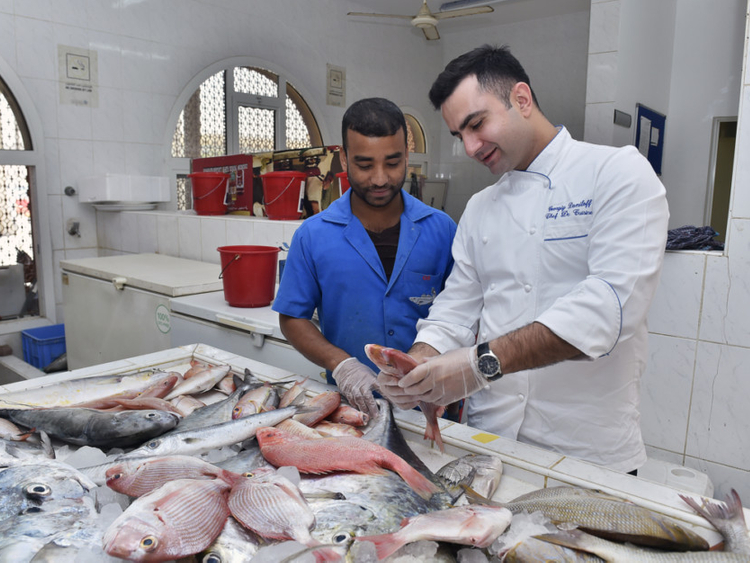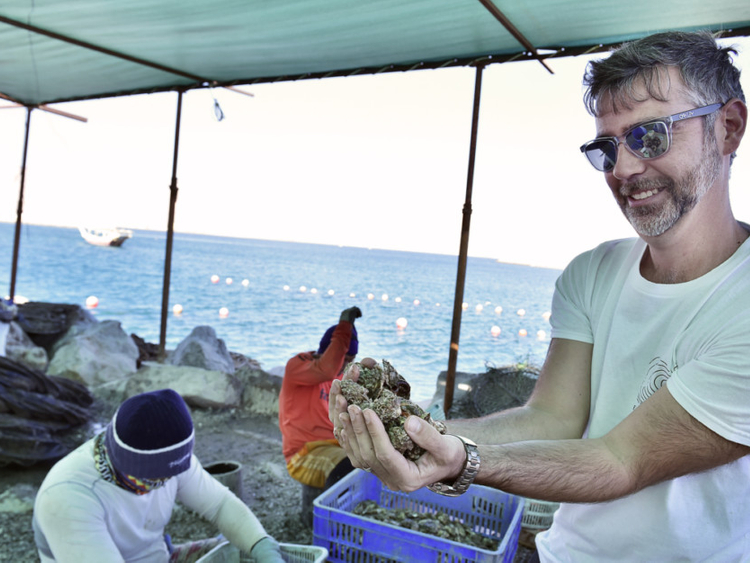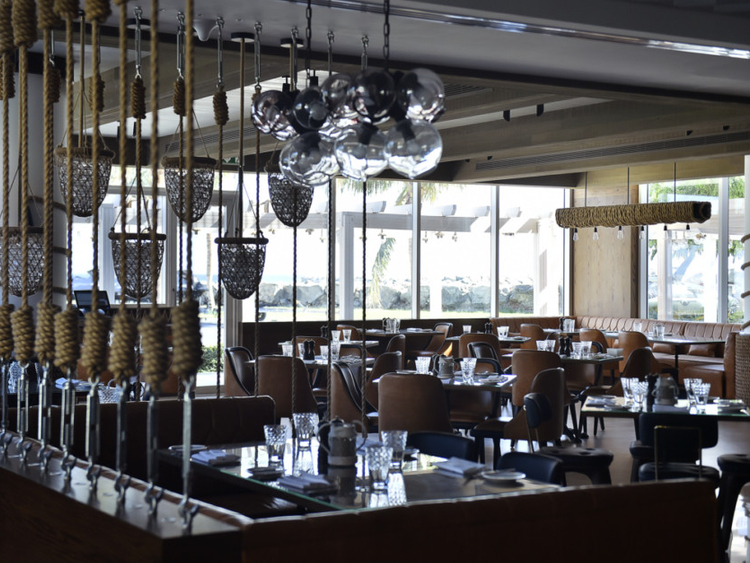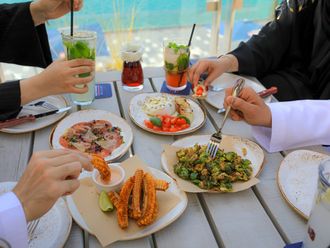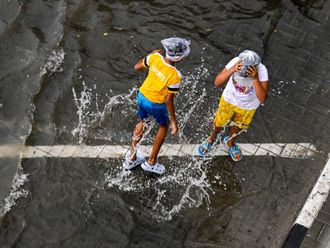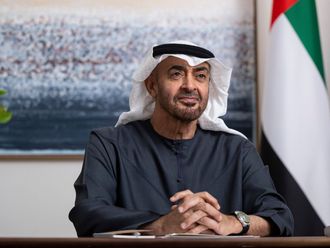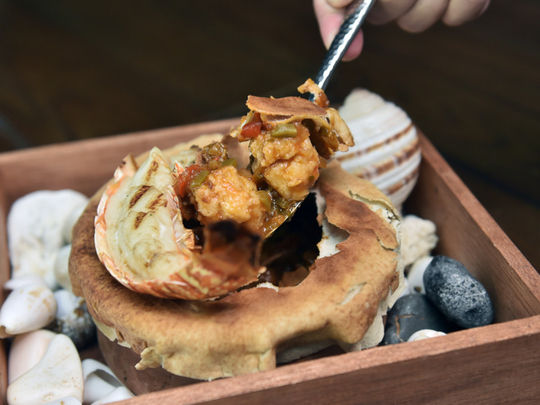
As with any social gathering in the UAE, where finding five or six nationalities around a table is a common occurrence, our shopping trolleys too are a hodgepodge of foods from all over the planet. It’s hard to eat local in a desert, you might think — and rightly so. Except that farmers and food manufacturers across the country are nurturing a change.
Over the past couple of years, we’ve reported on farms growing Dutch tomatoes in the emirate of Abu Dhabi, on aquaculture in the Jebel Ali Free Zone and burrata being produced in Ras Al Khaimah. Now one Fujairah hotel is attempting to take that further by creating a bond between local producers and the consumers eating their food — and in the process promote local, sustainable ways of eating.
As part of a new series of Culinary Destination packages, the Fairmont Fujairah Beach Resort will organise tours that combine visits to local food vendors and producers with dining experiences at its award-winning restaurants. Think of it as a foodie staycation.
“We import 85 to 90 per cent of food products into the UAE, let’s start to look for alternatives. Why aren’t we using more produce from local markets?” asks Giovanni Pugliano, the hotel’s Executive Chef. “I don’t understand why people don’t want to buy from the local market next door in Oman but want to go to Europe for everything. There’s quality produce available here, so why aren’t we using more from local markets?”
His initiatives are one way to educate residents and raise awareness, he says.
At the moment, between 80 and 90 per cent of fish served at the hotel is locally sourced — or about 35 per cent of all produce, Pugliano says. “We’d like to do more but we’re constrained by two factors — quantity and pricing. So we’re slowly adding more produce from local farmers such as Ripe, and reducing our reliance on imports.”
On a typical weekend break from Dubai, then, you can drive the hour and a half down to the hotel (or book a pickup), and after a quick libation, carry on to the fish market at Dibba Al Hisn, a few minutes away.
With no more than 20 stalls, this tiny but surprisingly clean market attracts buyers from all over the country. Twice a day, local fishermen bring their catch here to this seafood souq, which in an odd quirk of the Northern Emirates, actually belongs to Sharjah.
At the first shop on the left as we walk in, salesman Belal Ahmad tells me about the day’s catch. There’s more than a dozen different types on display at Al Sahal Fish Sale Shop, where he works, and he says delivers to customers across the UAE, who prefer fish from the cooler waters of the Indian Ocean. Among them are Pugliano and his colleague Georgiy Danilov, who are acting as our personal tour guides.
“I send photos of the day’s catch to my customers — even to hotel chefs — and they immediately tell me what they want,” Ahmad says, speaking to me in Hindi.
The Bangladeshi expat has been in the UAE for about 10 years, and delivers a regular consignment to the Fairmont Fujairah and to several other hotels nearby. Almost all his business is transacted by WhatsApp. He shows me his WhatsApp feed, and says he can deliver to my family in Dubai. “If you want fish for a barbecue, let me know.”
I tell him I want to try one now — what does he suggest? He picks out a beautiful orange kofar, or sea bream, and sends it over to a central counter to be cleaned, and then to a little grill shop across from him, where Indian expat Shakeel (he only gave one name) and Zain Khan, also Bangladeshi, cook customers’ orders for as little as Dh15. There’s an inevitable queue — a shelf behind them has eight or nine plastic trays neatly lined up, including half a kilo of prawns I bought at another stall. Everyone simply hands over their purchase, and amazingly, these two gentlemen are able to remember each order. Khan asks if I want mine hot, and proceeds to rub the fish and prawns down with salt and a mix of chilli, pepper and other ground spices. Fifteen minutes later, we dig in with our hands. The last time I ate fish this fresh was on an island beach in The Philippines and I’m back in my happy place again. The grilled prawns are excellent — slightly too done as is the norm here, but with a lovely kick to them.
I return in the afternoon, I’ll be able to watch the remains of the days catch being auctioned off, says Sharif Muhammad Abdusalam, the veterinarian inspecting that everything sold here is in line with ministry and municipality sustainability regulations. “You can even buy some fish. How’s your Arabic,” he asks me.
The day’s still young, so we head back to the hotel to join up the dots on this net-to-plate circuit. Later that evening — the auction foregone for a beachside sojourn — we find ourselves at the Copper Lobster, the Fairmont Fujairah’s signature restaurant, which was recently named Best Sustainable Restaurant at the Leaders In Food and Beverage Awards. With design features inspired by the emirate’s history as a fishing village — rope screens demarcate seating areas illuminated by fish net lighting elements — the raw, rustic brasserie lets diners choose the fish they want to eat from an ice bar, before its cooked and served.
Our first course is some freshly caught sultan Ibrahim (a local Threadfin bream), which Danilov, the restaurant’s Chef de Cuisine, has turned into a delicate, tangy ceviche topped with homemade amaranth crisps. “What’s ceviche? It’s one of the Japanese dishes created in Peru by Japanese immigrants. We’re also kind of immigrants over here, so I’ve given it an Emirati accent,” he says when I express surprise at his choice of protein. (Wikipedia later tells me ceviche’s origins are hotly debated, but some historians hold that it was taken to Peru by Moorish women from Granada — a splendid example of how globalisation often brings things circling back.)
He makes his catch of the day ceviche with any of a handful of fish: kofar, mahi mahi, and sometimes even sherry or Emperor fish.
But the apex of this native food adventure is the Omani lobster, from the Indian Ocean’s waters further up the peninsula’s eastern coast, served local style. “We wanted to make a dish that was all about local ingredients and local materials,” Danilov says. “I even picked up the seashells myself.”
The Fujairah Claypot Harra, when it comes to our table, is an Instagrammer’s delight. Charmingly nestled among an assortment of sea shells in a small wooden box is a clay pot from nearby Masafi, which is sealed with Arabic khubbus and topped with a barbecued lobster tail. In the style of dough-sealed North Indian dum pukht biryani, the aroma wafts across the room when the seal is broken. The lobster itself remains tender, and stands up surprisingly well to the spicy harra tomato sauce the UAE is so well known for. With a spoonful of za’atar rice, it’s a taste of the Emirates unlike anything I’ve eaten so far in the decade and a half I’ve lived here.
This is contemporary Emirati food at its best — local, sustainable and so good it’s worth making the drive for.
—————
Check it out!
The Fairmont Fujairah Beach Resort has launched a series of Culinary Destination packages. Prices begin at Dh250, and are customised depending on inclusions.
—————
Fujairah Claypot Harra lobster recipe
Serves 4
Ingredients
1 tbsp cumin seeds
100ml pure ghee
3 pieces bay leaf
3 pieces dry lemon
50g red chilli (medium spice)
15g green chilli
1kg Omani lobster
35g fresh coriander
600g bell peppers
70g tomato paste
150g white onion
360g fresh tomato
4 pieces brown Arabic bread khaboos
1 pieces Fresh lime seedless
200g Basmati rice
50g Za’atar fresh
20g Garlic
40g Butter
Fish stock
Method of preparation
1) Clean the lobster by removing the shell and the vein, cutting the lobster into half-length pieces, and running it under cold water. Marinate the lobster with salt, freshly-cracked black pepper and lime juice. Set aside.
2) Heat the ghee in a Fujairah claypot. Temper with cumin seeds, chopped garlic and chilli. Add in your spices, including bay leaves and dry lemon. Cook for 3 minutes over high heat until the flavours are married, and the cumin turns golden brown in colour. Add in tomato paste, and cook for another 2 minutes, mixing continuously. Add onion and cook until softened. Add remaining vegetables and half seafood stock. Cook for at least 25 minutes on low heat, until all the vegetables soften.
3) Add your prepared lobster chunks in the vegetable spice mix and add 15 grams of hard butter. Sprinkle chopped coriander, line the Fujairah clay pot with Arabic bread and cook in the oven until the bread is crispy.
4) Soak the basmati rice in water for 30 minutes, and add in the butter, chopped garlic, and fresh Za’atar leaves. Saute the basmati rice for 4 minutes and add in the seafood stock. Taste for seasoning, cover with aluminium foil and cook for 15 minutes until the rice is cooked and the water is absorbed.
5) Serve hot in the Fujairah claypot with Za’atar pilaf, garnished with chopped Za’atar and a lime wedge.



